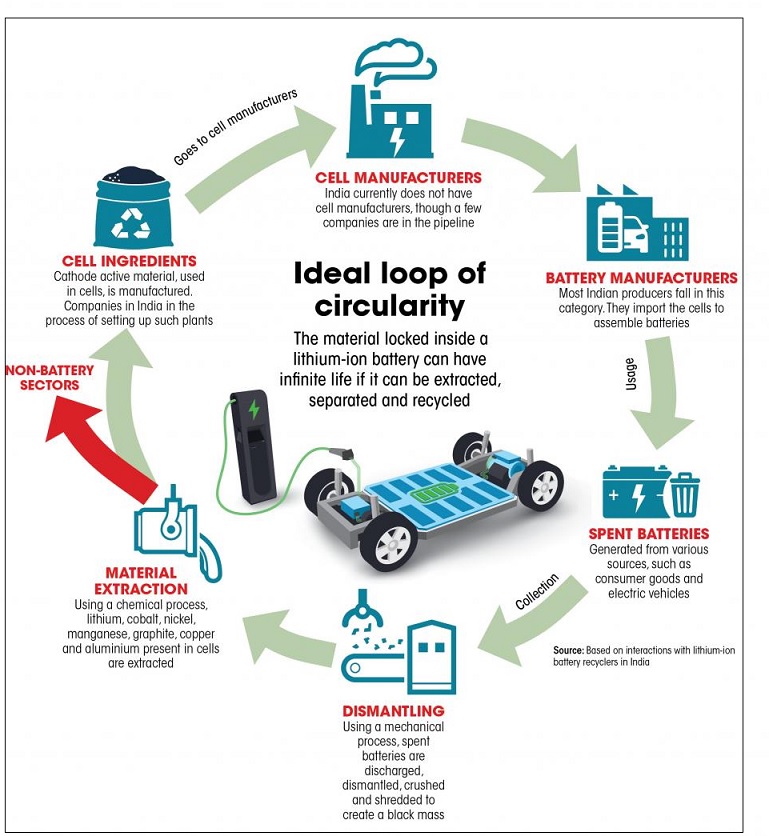Electric Vehicles (EVs) are seen as key to decarbonise mobility, but there are challenges in recycling lithium-ion batteries from electric vehicles.
|
Battery Waste Management Rules 2022 |
|
|
Nodal agency |
Ministry of Environment, Forest and Climate Change (MoEFCC) |
|
Coverage |
All types of batteries - EV batteries, automotive batteries, industrial batteries and portable batteries |
|
Extended Producer Responsibility (EPR) |
Producers (including importers) of batteries are mandated to collect and recycle/refurbish waste batteries |
|
Online portal |
Provides for exchange of EPR certificates between producers and recyclers/refurbishers |
|
Recovery |
Minimum percentage of recovery of materials from waste batteries is mandated |
|
Polluter pay principle |
Environmental compensation will be imposed for non-fulfilment of EPR targets and obligations set out in the rules |
|
|
|
|
Global Climate Friendly Initiatives for Battery Recycling |
|
Telangana model- Electric Vehicle Policy provides incentives to recycling businesses for ultra-processing.
Punjab model- Punjab is creating an e-marketplace to encourage resale of used batteries along with incentives to promote resale.

References